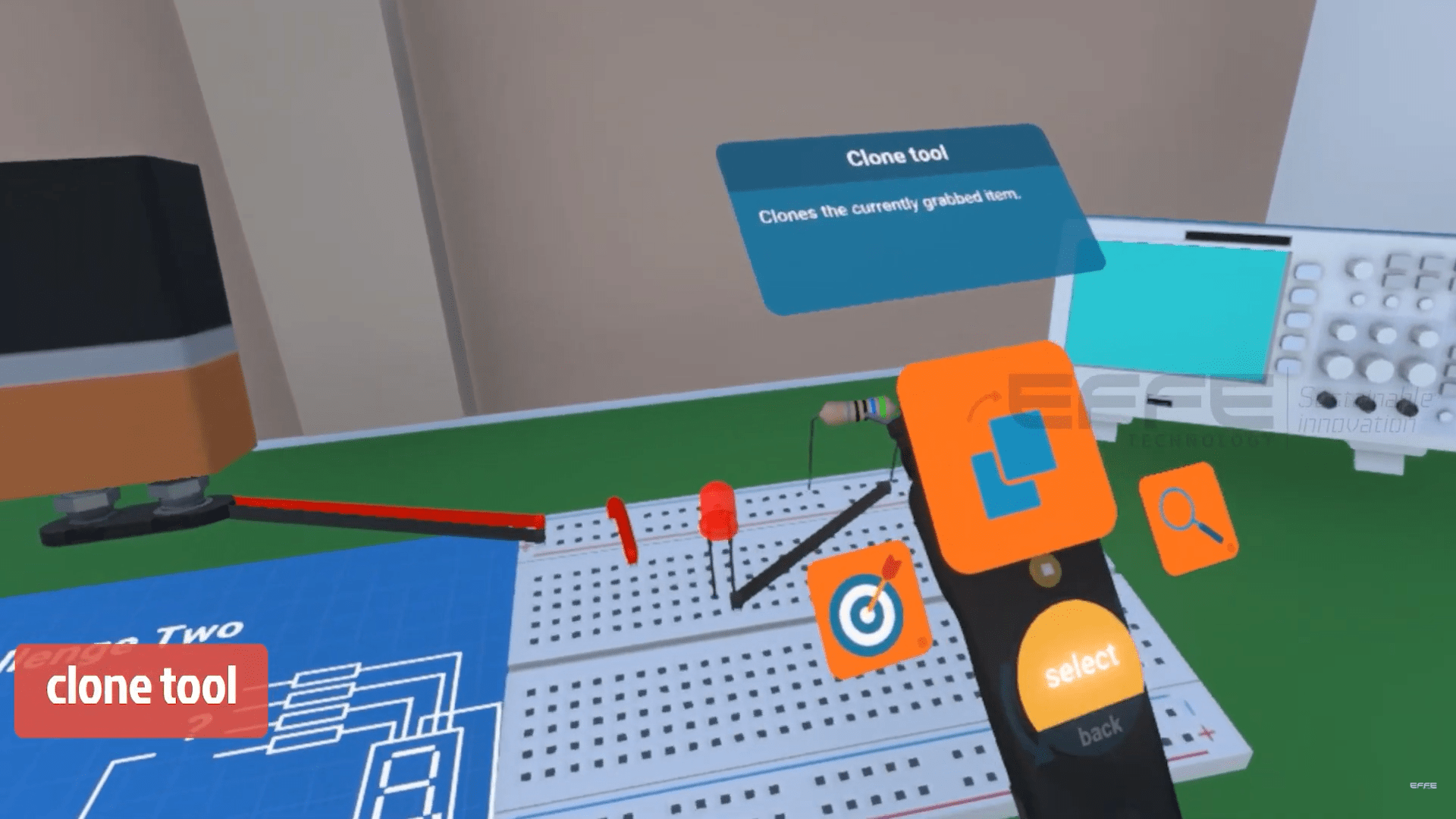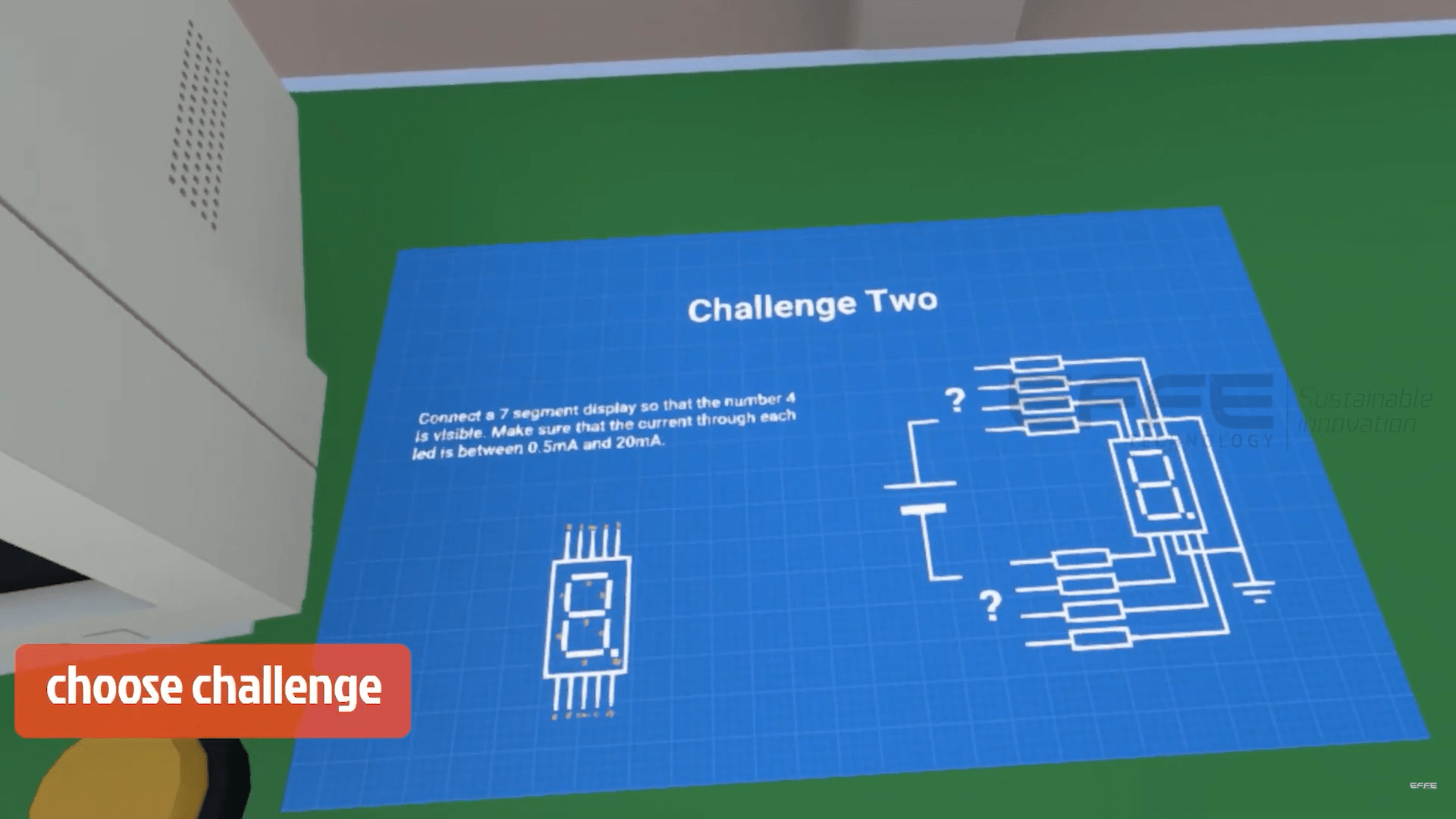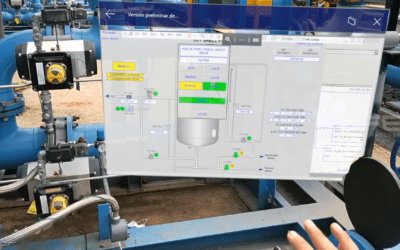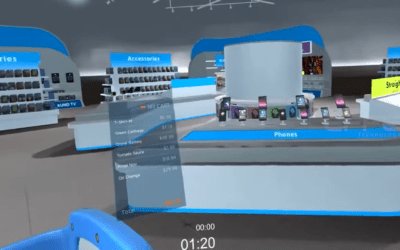Project Brief:
This case study highlights the development and implementation of a VR-based electronics lab simulator, designed to offer an immersive learning experience in the field of electronics. The solution aimed to provide an interactive environment where students and professionals could practice and learn about electronics, particularly understanding the behavior of short circuits, without the need for physical equipment. This innovative platform is an example of virtual lab solutions that enhance educational outcomes.
Client Requirement:
The client, an educational institution, required a comprehensive and immersive virtual learning platform that would simulate an electronics lab environment. The main goal was to create an engaging, hands-on experience where students could interact with various electrical components and circuitry in a risk-free, virtual space. This solution had to integrate simulations for learning electrical circuits, troubleshooting short circuits, and understanding other electrical phenomena in a practical yet virtual way. The key features required included:
- Real-time simulation of electrical components and circuits.
- Interactive elements allowing users to modify and experiment with the circuits.
- A safe environment to simulate short circuit scenarios without any physical risk.
- A user-friendly interface designed for both beginners and advanced learners.
- Integration of detailed explanations and tutorials about electrical circuits, components, and short circuits.
The client sought virtual lab solutions that would provide an accessible, hands-on experience for all levels of learners. Visit Our Partner Site
Project Planning, Strategy, Our Process:
To achieve the client’s requirements, a comprehensive approach was adopted:
Research and Analysis:
Our team conducted extensive research into the existing methods used in electronics education and analyzed how virtual lab solutions powered by VR could improve learning outcomes. We identified the need for simulations that go beyond traditional textbook learning, providing practical, hands-on experiences without the physical limitations.
VR Solution Design:
Based on the client’s brief, we designed a VR simulation system that would replicate a typical electronics lab. The system featured interactive 3D models of electronic components such as resistors, capacitors, switches, and power sources. This solution represented one of the most advanced virtual lab solutions available for electronics education. The VR experience was crafted to allow users to connect these components and simulate electrical circuits, including creating short circuits.
User Experience (UX) Design:
We focused on building a user-friendly interface to ensure accessibility for all levels of learners. The interactive VR platform was designed to be intuitive, with a simple point-and-click functionality to place and connect components, alongside visual cues to guide users through the process. These elements are crucial for effective virtual lab solutions that enhance learning.
Development & Testing:
The platform was developed using state-of-the-art VR technologies. Our developers used Unity3D to create realistic simulations, while also incorporating detailed tutorials and instructional guides for each experiment. Rigorous testing was done to ensure the platform’s stability and functionality, ensuring that users could safely and effectively use the system. The outcome was a robust virtual lab solution that simulated real-world electronics labs seamlessly.
Integration of Short Circuit Scenarios:
A key feature was the ability to simulate short circuits safely. Users could experiment by intentionally misconnecting components to observe the effects of short circuits, providing hands-on learning without the danger of actual electrical hazards. The simulation also provided feedback on how to correct these errors, giving users the opportunity to learn from their mistakes. Such features make virtual lab solutions indispensable in technical education.

Deliverables and Client Benefits:
Deliverables
The final VR solution offered a fully immersive, interactive learning platform for electronics students. Key deliverables included:
- Virtual Electronics Lab: A fully functional, interactive VR simulation where users could simulate electrical circuits, including short circuits.
- Educational Content Integration: Detailed tutorials, theory, and instructions for creating and troubleshooting electrical circuits.
- Real-Time Feedback: The system provided real-time feedback on user actions, such as warning about potential short circuits or incorrect component placement.
- Multi-Device Compatibility: The VR solution was compatible with various VR headsets and systems, ensuring it could be accessed across multiple platforms.
- Post-Training Analytics: The client received detailed reports on user activity within the simulation, helping educators track learner progress and identify areas where additional training might be needed.
Client Benefits:
- Enhanced Learning Experience: The VR solution allowed students to practice real-life scenarios, providing them with a better understanding and hands-on experience without any physical constraints.
- Safe Learning Environment: By simulating short circuits and other electrical faults, students could experiment freely and safely, which significantly reduced risks compared to traditional methods.
- Improved Engagement: The interactive nature of the virtual lab solutions motivated students to engage with the content in a more dynamic and participatory manner, improving retention and understanding.
- Cost Efficiency: The VR-based lab reduced the need for physical lab equipment, which could be expensive and challenging to maintain.
Conclusion:
The VR-based electronics lab simulator successfully met the client’s need for an immersive and educational tool. By creating an interactive platform that simulates complex electrical concepts such as short circuits, the solution provided students with a risk-free environment to learn and practice. The project demonstrated the power of virtual lab solutions in enhancing educational outcomes, particularly in technical fields like electronics. The VR solution not only provided an engaging learning experience but also helped the client save on costs and improve the efficiency of their teaching methods.
Short Circuit VR | Electronics Lab Simulator in Virtual Reality | VR E-Learning | EFFE Technology




